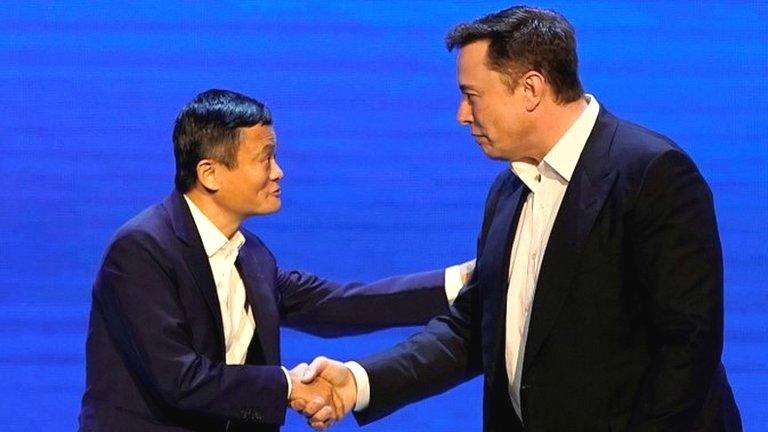Musk: Robots to be bigger business than Tesla cars
- Published
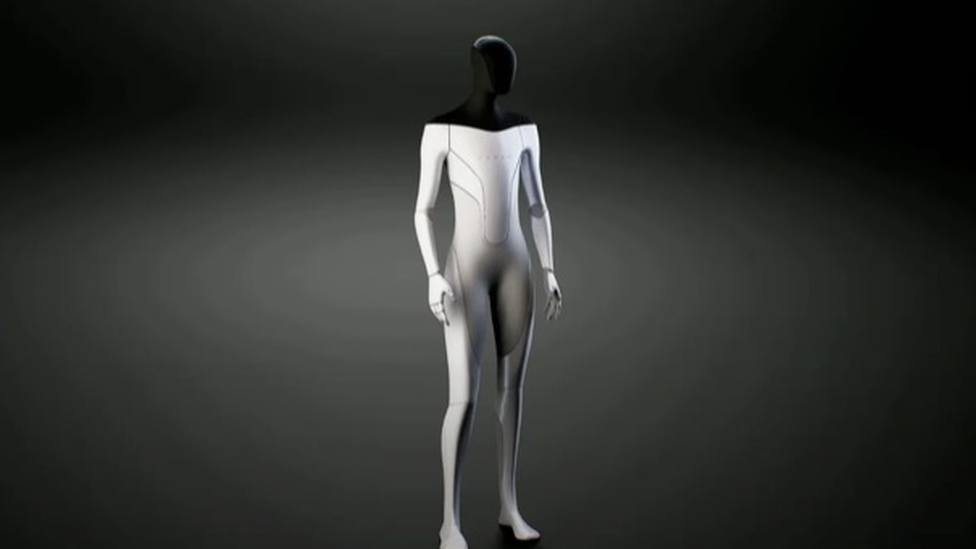
The Tesla Bot was unveiled last summer
Elon Musk likes to have a focus - and this year, it looks like it might be robots.
He told investors on a Tesla earnings call his nascent robot plans had "the potential to be more significant than the vehicle business, over time".
And they would be the most important things Tesla worked on this year.
The robot in question, part of a project dubbed Optimus, was previewed last year - to raised eyebrows - by a human in a robot suit dancing on stage.
And the performance became a popular internet meme.
The Tesla Bot, as it was dubbed, would use the same artificial-intelligence (AI) systems that helped power Tesla vehicles, Mr Musk said at the event last August - but no prototype has yet been made.
He also said the not-yet-built 5ft 8in robot would have a screen on its "face" and be able to lift 150lb and travel at about 5mph.
Labour shortages
This week, Mr Musk told investors the humanoid robot's first application would be at a Tesla plant "moving parts around the factory, or something like that".
But in the future, he sees it helping solve labour shortages.
And earlier this week, he tweeted:, external "Tesla AI might play a role in AGI [artificial general intelligence], given that it trains against the outside world, especially with the advent of Optimus".
Allow X content?
This article contains content provided by X. We ask for your permission before anything is loaded, as they may be using cookies and other technologies. You may want to read X’s cookie policy, external and privacy policy, external before accepting. To view this content choose ‘accept and continue’.
AGI refers to the ability of a machine to learn or understand tasks currently performed by humans.
Mr Musk has previously warned AI risks killing off human civilisation.
And in the same Twitter thread, he added: "Decentralised control of the robots will be critical."
'Narrow intelligence'
Professor of robot ethics Alan Winfield, at the University of West England, said: "AGI is an exceptionally hard problem.
"The idea that you can crack AGI because you have created a driverless vehicle is absurd.
"Even if that car is highly capable, that would not be AGI - it would be high-functioning narrow intelligence.
"Google and Facebook have hired some of the best AI people in the world and the idea that Musk can come in and crack the problem is hubristic in the extreme."
Mr Musk does likes hard problems though, from autonomous cars to trips to Mars, and has plenty of successes.
SpaceX's reusable rockets are widely regarded as representing a big step forward for space flights, for example.
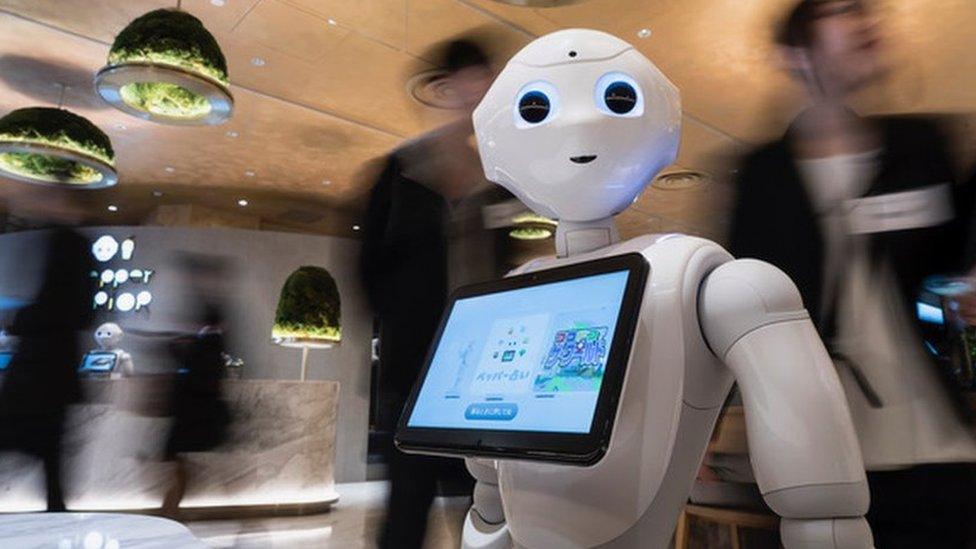
Pepper was one of the highest profile robots, making appearances at events around the world
But previous efforts to create cost-effective mass-market humanoid robots have failed.
In June, Japanese conglomerate Softbank announced production of Pepper, a friendly little humanoid, had been paused and would start again only when the robots were needed, much to the dismay of the academic community that used them.
That said, robots are increasingly used in factories around the world, with a current average of 126 robots per 10,000 employees in the manufacturing industry, according to the International Federation of Robotics.
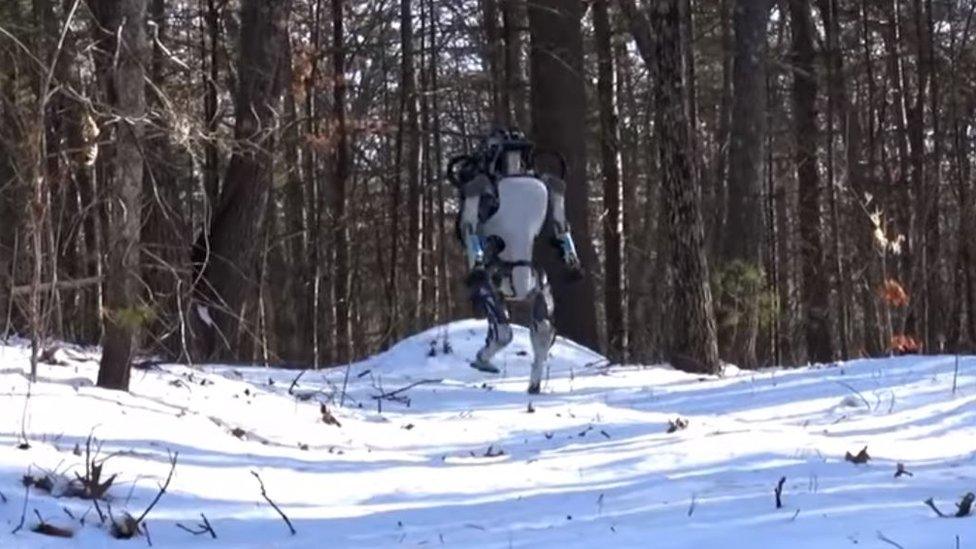
Keeping robots upright is a big challenge
Many, though, remained sceptical about Mr Musk's plans.
Accel Robotics software engineer Filip Piekniewski tweeted, external: "Anyone who thinks Tesla is actually building a humanoid robot is living in an alternate reality.
"Mars bases is more likely than the bot."
And professor of cognitive robotics Tony Prescott, at the University of Sheffield, told BBC News Mr Musk would face many challenges.
"If it is being used in a factory, then a wheel-based robot would be much easier to build and have no problems of balance - but then it wouldn't be humanoid," he said.
'Research problems'
Keeping the robot upright would be one of the biggest issues, Prof Prescott said, along with creating hands and any form of hand-to-eye co-ordination.
"These are fundamental research problems that you need to solve," he said.
And even robots such as Atlas, designed by Boston Dynamics and regarded as one of the most sophisticated humanoid bots available "will be attached to the ceiling when it is not making videos".
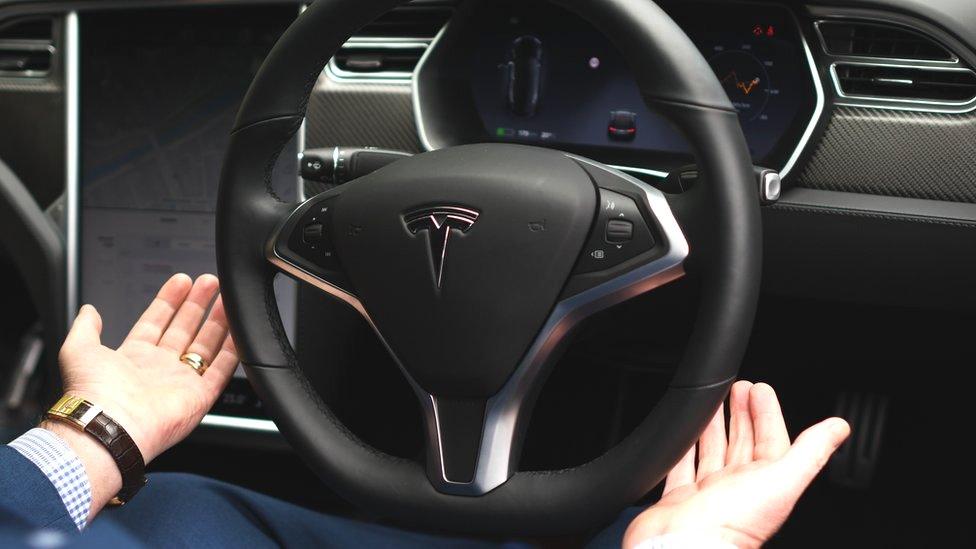
The AI in cars will be very different to that needed for robots, experts say
"Tesla cars are robots - but they are a much simpler form, so this will be starting from scratch," Prof Prescott added.
Prof Winfield agrees with Mr Musk on one thing though.
"The only thing that Musk is getting right is that the path towards AGI will be through physical robots," he said.
"Our own intelligence is grounded in the real world."
The Tesla boss's new robotics focus may disappoint some customers - in the same earnings call, he also said the company would not be introducing any new car models in 2022.
And he does have a history of making rather ambitious promises.
In 2019, he said Tesla would have one million robot-taxis on the road by the end of 2020.
- Published29 June 2021
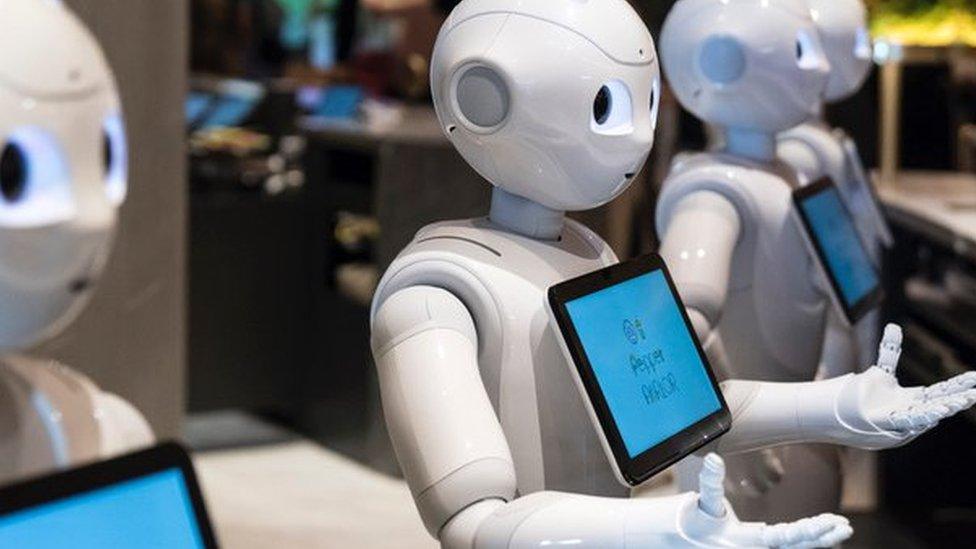
- Published29 August 2019
